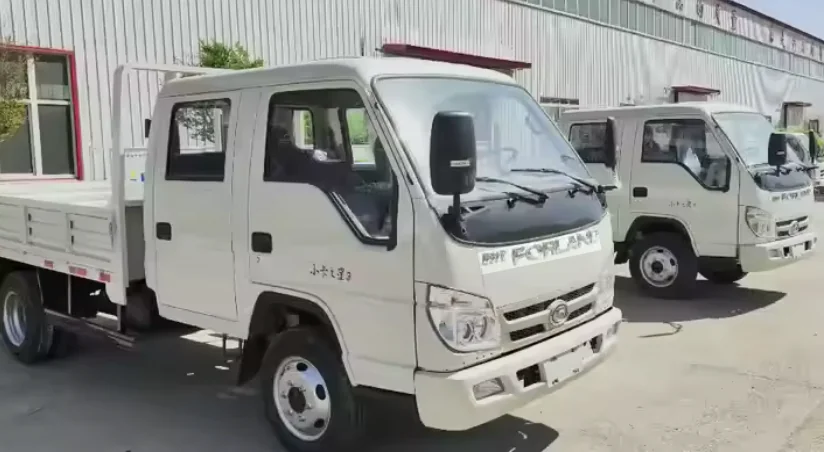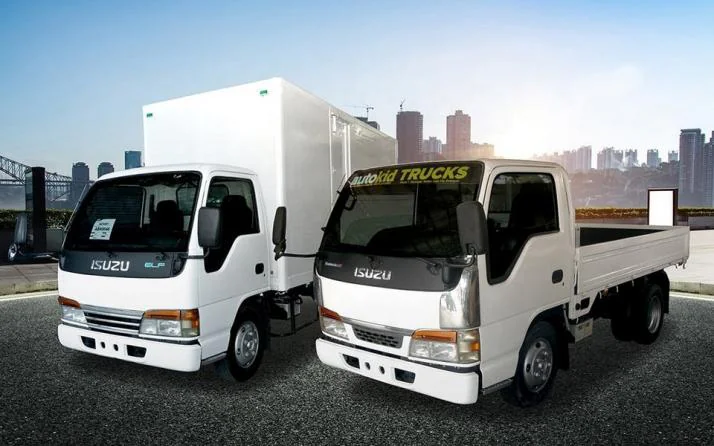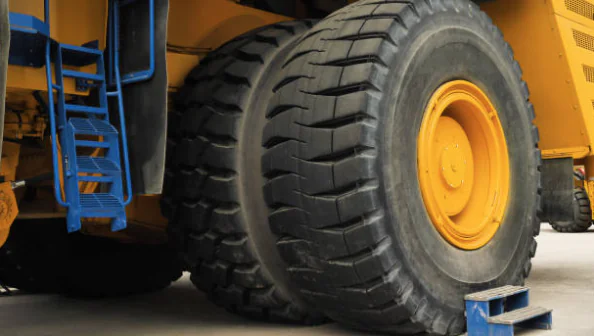Farm tractor tires, also known as ag tires or agricultural tires, specially designed and engineered to perform in both hard and soft soil conditions.
At Forlander, we know that the right farm tractor tires can make a huge difference in your tractor’s performance. Whether you’re driving through muddy fields, plowing through hard-packed soil, or simply moving across the farm with precision and speed, the right tires can enhance traction, increase efficiency, and ensure the longevity of your equipment.
As the reliable OTR Tyre Manufactuer and supplier, Forlander tire offers a wide range of heavy-duty farm tractor tires designed for various agricultural applications. Choosing the right tires for your farm tractor isn’t just about replacing parts, it’s about choosing a tool that can transform your farming operation. In this article, let us explore the definition, benefits, types of farm tractor tires and main considerations when choosing the right farm tractor tires.
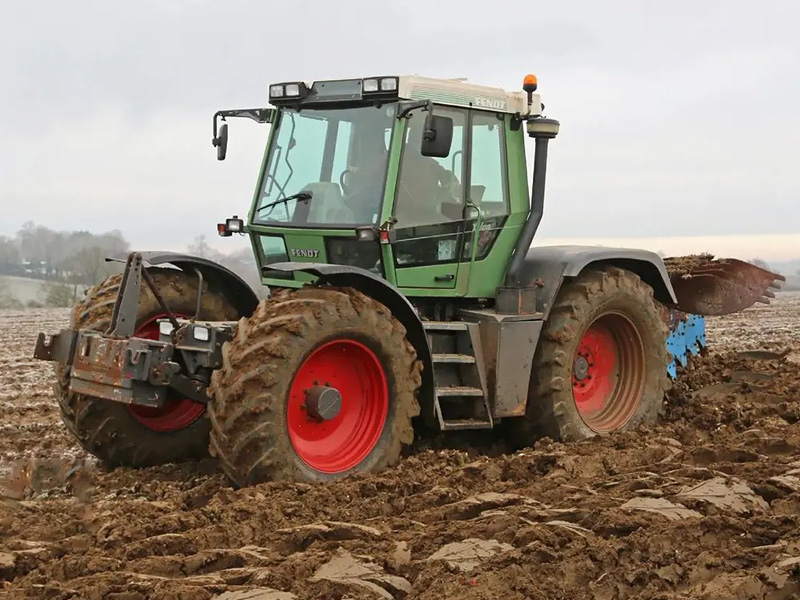
1. What Are Farm Tractor Tires?
Farm tractor tires are specialized tires designed specifically for tractors used in agricultural operations. They are engineered to withstand the unique challenges of farming tasks, including heavy loads, harsh terrain, and diverse weather conditions.
These tires are available in various sizes, treads, and designs to cater to different farming needs. Compared to tires used in regular vehicles, farm tractor tires are typically larger in size. This larger size allows them to distribute the tractor’s weight over a larger surface area, reducing soil compaction and minimizing damage to crops.
Farm tractor tires feature deep, aggressive treads that enhance traction and self-cleaning properties. The tread design helps the tires grip the ground, even in muddy or slippery conditions, while preventing the buildup of mud, debris, and rocks in the tire grooves. This ensures optimal traction and performance on different types of terrain, such as soil, mud, gravel, and uneven surfaces.
Durability is a key feature of farm tractor tires. They are constructed with tough materials to withstand punctures, cuts, and wear caused by rough terrain and potential contact with sharp objects commonly found in agricultural fields.
Different types of farm tractor tires are available to suit specific farming applications and conditions. For example, there are tires designed for row-crop farming, which have a narrow profile to fit between crop rows without damaging crops. Other tires are engineered for heavy-duty tasks like hauling and plowing, offering increased load-carrying capacity and enhanced traction.
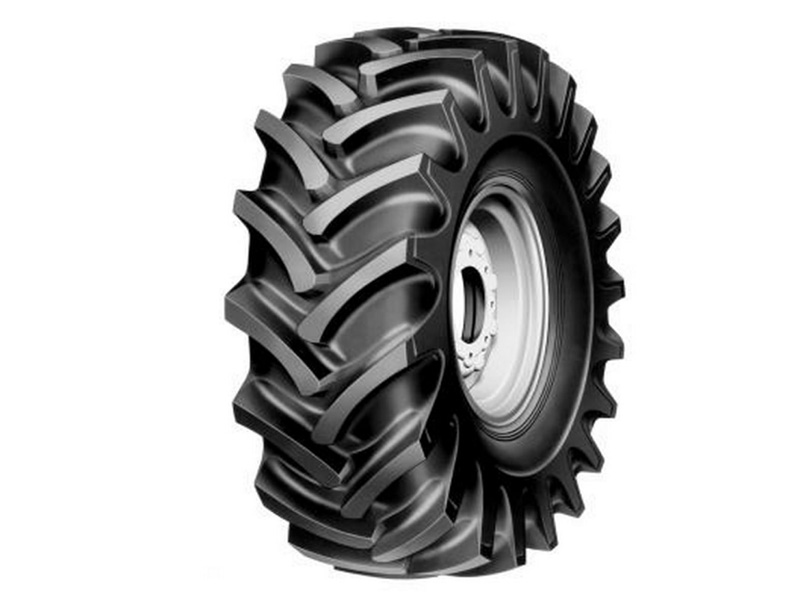
2. What Are Advantages of Farm Tractor Tires?
Farm tractor tires offer several advantages that make them well-suited for agricultural operations:
2.1 Deep Lugs
The deep lugs on farm tractor tires act like cleats, digging into the soil for superior traction and preventing the tractor from getting stuck. The wide spacing between the lugs allows for self-cleaning, ensuring that dirt and debris do not accumulate and reduce traction.
2.2 Durability for Rough Terrain
Farm tractor tires are designed to withstand the challenges of rough terrain commonly found on farms. They are made from durable rubber compounds and other materials to resist cuts, abrasions, and punctures. This durability ensures prolonged use and reliable performance even in demanding conditions.
2.3 Large Footprint
Wider tractor tires distribute the weight of the tractor over a larger surface area, reducing the pressure per square inch on the soil. This minimizes soil compaction, which can hinder plant growth and reduce productivity.
2.4 Low Air Pressure
Tractor tires can be operated at lower air pressures compared to car tires. This increases the surface area in contact with the ground, further reducing soil compaction and improving traction.
2.5 Traction in Soft Soil
Farm tractor tires are designed with specific patterns and treads to provide excellent traction on various terrains, including slippery and loose soil. Their tread design allows them to excel in plowed fields, muddy patches, and other challenging conditions.
2.6 Load Capacity
Tractor tires are classified according to their load-carrying capacity, ensuring they can safely support the weight of the tractor and the equipment it tows. This allows for efficient and safe operations in agricultural tasks.
2.7 Sizes and Specifications
Farm tractor tires come in a wide range of sizes and specifications to suit different types of tractors and meet specific agricultural operation needs. This versatility ensures that farmers can find the right tires for their equipment and tasks.
2.8 Versatility
Farm tractor tires are suitable for various agricultural operations, including plowing, planting, harvesting, and hauling. Their design and features make them adaptable to the diverse needs of different farming tasks.
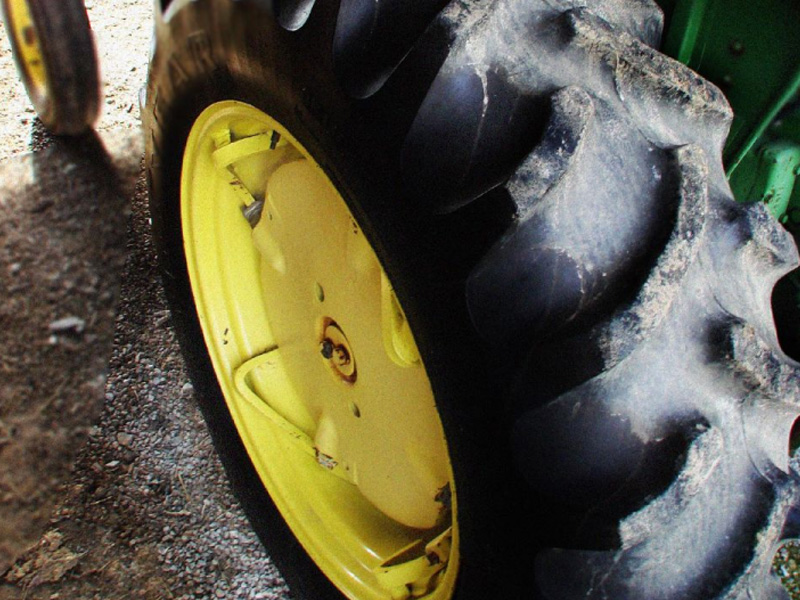
3. What AreTypes of Farm Tractor Tires?
3.1 R1 Agricultural Tires
The R1 agricultural tire is designed for general farming on dry land. They provide excellent traction and stability, allowing the tractor to maneuver easily on all types of dry soil. These tires typically have a moderate tread depth and rugged construction, making them suitable for tasks such as plowing, tilling and hauling on dry farmland. R1 agricultural tires are renowned for their durability and wear resistance, ensuring long-lasting performance in demanding agricultural conditions.
3.2 R1W Tires
The R1W tire is an upgraded version of the R1 agricultural tire, designed to handle wet and muddy conditions. These tires feature a deeper, more aggressive tread pattern that provides superior traction and self-cleaning capabilities. The reinforced tread design helps expel mud and debris, preventing tire clogging and ensuring continued grip in muddy terrain. The R1W tires also provide better flotation, reducing the risk of getting stuck in the wet. They are an excellent choice for farmers who frequently encounter wet and muddy conditions during their operations.
3.3 R2 Rice and Cane Tires
The R2 Rice and Sugar Cane Tires are specifically designed to perform well in very wet conditions and deep mud, making them ideal for use in rice fields and sugar cane plantations. These tires feature an aggressive tread pattern and deep lugs to provide maximum traction in extremely muddy and slippery terrain. Wide lugs help prevent the tires from sinking into mud, ensuring the tractor can handle challenging conditions with ease. The R2 rice and cane tires are designed to withstand the rigors of waterlogged fields, providing excellent flotation and minimizing soil compaction.
3.4 R3 Turf Tires
R3 Turf Tires are designed to protect fragile turf and minimize soil compaction during light tillage and lawn work. These tires have a unique tread pattern with shallow lugs and a wide footprint that reduces impact on the ground and prevents damage to the grass. R3 turf tires provide excellent traction while minimizing the risk of lawn damage, making them suitable for tasks such as mowing, seeding and landscaping. These tires are commonly used on golf courses, parks, and residential areas where maintaining the quality of your lawn is critical.
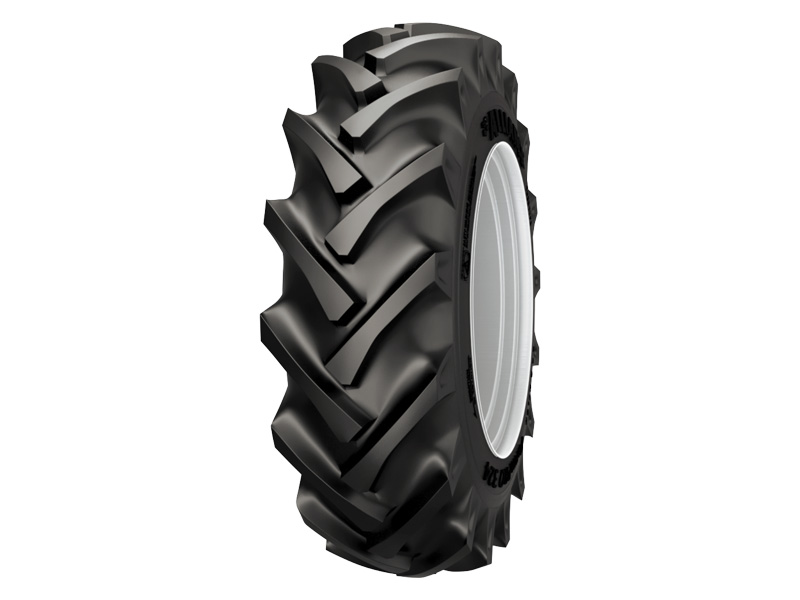
4. How To Choose Right Farm Tractor Tires?
When choosing the right farm tractor tires, several factors should be taken into consideration to ensure optimal performance:
4.1 Tread Design
Select a tread design that suits the specific farming application. Different tread patterns, such as R1 for dry land farming, R1W for wet and heavy clay soils, and R2 for wet and muddy conditions, are available to match the terrain and conditions you’ll encounter.
4.2 Load Capacity
Ensure that the tire has a sufficient ply rating and size to handle the maximum load it will bear. Consider the weight requirements of your equipment and select a tire that can safely carry the necessary load.
4.3 Size Comparison
Compare the size of the new tire with the one you are replacing. Take into account the mounted width and mounted diameter to determine clearance and ensure compatibility with your equipment, especially for four-wheel-drive machinery.
4.4 Radial vs. Bias Construction
Evaluate whether radial or bias construction is more suitable for your needs. Radial tires generally offer superior traction and efficiency compared to bias tires. Consider the specific advantages and characteristics of each construction type.
4.5 Tubeless or Tube Type
Decide whether you require tubeless or tube type tires. Tubeless tires have gained popularity and are used by leading tractor manufacturers. They provide the same load capacity and inflation as tube type tires but offer higher reliability and easier puncture repair.
4.6 Tire Maintenance and Longevity
Regularly inspect your tires for signs of wear, damage, or punctures. Monitor tread depth to ensure optimal traction and replace tires when necessary. Following proper maintenance practices will extend the life of your tires and enhance their performance.
5. Summary
Choosing the correct farm tractor tires is crucial for maximizing efficiency, minimizing soil compaction, and ensuring reliable performance in agricultural operations. By considering the factors mentioned above and seeking guidance from tire manufacturers or industry experts, you can make an informed decision and select the most appropriate tires for your equipment and farming tasks. With proper tire selection and maintenance, you can optimize productivity and achieve the best results in the field.
Forlander, a trusted tire manufacturer, offers a range of tire constructions, including bias ply and radial designs, each with its own advantages in terms of durability, traction, and performance. They also provide various tread patterns to suit different farming tasks and terrains. Forlander’s expert advice and support can assist you in selecting the right tire size and ensuring compatibility with your tractor and agricultural needs.
Any questions, please contact us.
